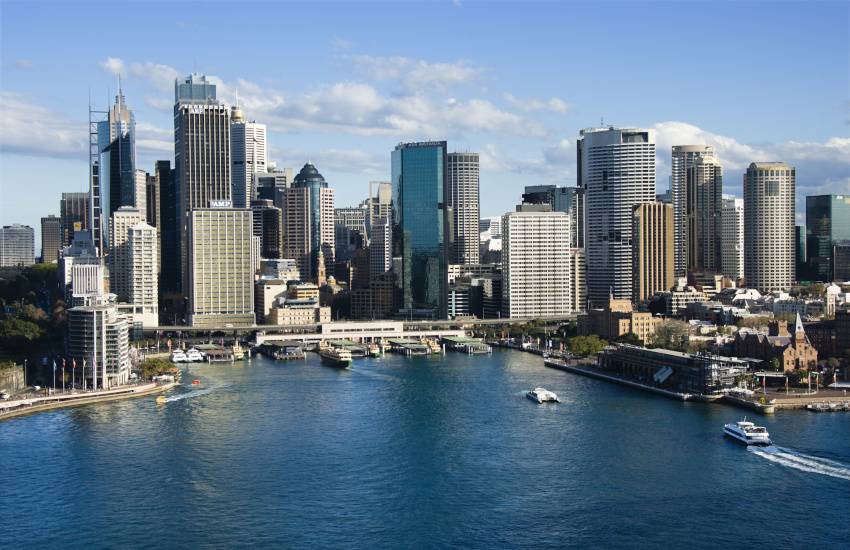While NSW Treasurer Dominic Perrottet is not expected to announce a new electric vehicle tax during the 17 November state budget, he is continuing to discuss with interstate counterparts about the design of a user charge for electric vehicle owners.
The NSW Treasurer on Friday announced a plan to make electric vehicle users pay “a fair and equitable share” for their use of the road.
You’re out of free articles for this month
“You don’t want to stifle new technology, but on the other hand, it’s hardly fair for tradies in utes to pay a tax that someone who can afford a $100,000 hi-tech car does not,” Mr Perrottet told The Australian.
He said the fuel excise tax is currently used to pay for road transport infrastructure, and the income stream would need to be replaced as electric vehicle use grows.
Critics of the new tax proposal have stated New South Wales Treasurer Dominic Perrottet will cement his state’s status as the dirty car capital of the world if he follows through with a scheme to whack a tax on electric vehicles, according to the Electric Vehicle Council.
EVC chief executive Behyad Jafari said the Treasurer’s puzzling position, if retained, would be a crushing disappointment to those who could see the abundant potential of electric vehicles for New South Wales.
“No other jurisdiction in the world — aside from the South Australian Coalition Government this week — has thought it sensible to apply a special new tax to electric vehicles,” Mr Jafari said.
“Yes, in the long run governments won’t be receiving as much in fuel excise as people drive more efficient vehicles. But that’s a good thing. Burning less foreign oil in our cars is good for our city air, it’s good for our health, it’s good for our climate, and it’s good for our economic sovereignty.
“The money paid in fuel excise doesn’t get quarantined for roads. That’s a myth. If tax is dwindling from one area, governments don’t have to make it up from that same area. That would be like whacking a new tax on nicotine gum because you’re worried about a drop in the tobacco excise. It’s madness.”
New South Wales would become the second state to try to introduce an EV tax following South Australia, becoming a world first this week.
However, the controversial electric vehicle road tax proposed by the South Australia Liberal government faces defeat in State Parliament after Labor vowed to vote against the move, stating it is a dangerous precedent for all motorists, and hoped to gain support from the minor parties.
“We should be striving to be a national leader when it comes to electric cars, which would benefit our economy and our environment,” said state Labor leader Peter Malinauskas.
The EV road tax unveiled on Tuesday by state Treasurer Rob Lucas was designed to offset falling tax revenue as EV vehicles do not pay fuel excise, as they do not burn fuel.
His tax proposal would apply to hybrid cars that burn only a small amount of fossil fuels.
However, Mr Malinauskas pointed out this would make South Australia the only place in the world to not support the transition to electric vehicles.
“If this proposal passes, South Australia would be the first jurisdiction in Australia to have a tax on electric and zero emission vehicles,” the Opposition Leader said.
“The tax will include a fixed tax for all electric cars and an additional variable charge based on distance travelled.”
Australia’s peak motoring group said South Australia’s move to bring electric vehicles into the tax system is a step in the right direction, but one which will require a national approach to ensure consistency and fairness.
AAA managing director Michael Bradley said the South Australian government is right to start this transition by focusing on electric vehicles, just as many other jurisdictions are around the globe, but cautioned that the federal government needs to play a co-ordinating role to ensure drivers are treated consistently across the nation.
“Ensuring all drivers contribute to the transport projects we all need makes our tax system more sustainable and more equitable. However, a state-by-state approach to what in reality is a national road network and a national market brings risks. Inconsistent approaches risk unnecessary cost, inequity and confusion.”
October’s federal budget shows Australian motorists will pay $49.3 billion in fuel excise over the next four years, which will fund roads and other land transport infrastructure.

 Login
Login






